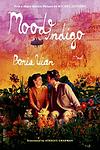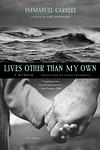The Greatest French "Tragedy" Books of All Time
Click to learn how this list is calculated.
This list represents a comprehensive and trusted collection of the greatest books. Developed through a specialized algorithm, it brings together 284 'best of' book lists to form a definitive guide to the world's most acclaimed books. For those interested in how these books are chosen, additional details can be found on the rankings page.
Genres
Tragedy is a genre of literature that explores the darker aspects of human nature and the human experience. It typically involves a protagonist who is faced with a series of challenges and obstacles that ultimately lead to their downfall or demise. Tragic stories often deal with themes of loss, grief, and the struggle to find meaning in a world that can be cruel and unforgiving. Despite their often bleak subject matter, tragic stories can be deeply moving and thought-provoking, offering readers a powerful glimpse into the complexities of the human condition.
Countries
Date Range
Reading Statistics
Click the button below to see how many of these books you've read!
Download
If you're interested in downloading this list as a CSV file for use in a spreadsheet application, you can easily do so by clicking the button below. Please note that to ensure a manageable file size and faster download, the CSV will include details for only the first 500 books.
Download-
1. Madame Bovary by Gustave Flaubert
Madame Bovary is a tragic novel about a young woman, Emma Bovary, who is married to a dull, but kind-hearted doctor. Dissatisfied with her life, she embarks on a series of extramarital affairs and indulges in a luxurious lifestyle in an attempt to escape the banalities and emptiness of provincial life. Her desire for passion and excitement leads her down a path of financial ruin and despair, ultimately resulting in a tragic end.
-
2. The Stranger by Albert Camus
The narrative follows a man who, after the death of his mother, falls into a routine of indifference and emotional detachment, leading him to commit an act of violence on a sun-drenched beach. His subsequent trial becomes less about the act itself and more about his inability to conform to societal norms and expectations, ultimately exploring themes of existentialism, absurdism, and the human condition.
-
3. The Hunchback of Notre-Dame by Victor Hugo
Set in 15th-century Paris, this novel follows the story of Quasimodo, a deformed and hunchbacked bell-ringer of Notre-Dame Cathedral, who is shunned due to his appearance. Despite his physical deformities, Quasimodo falls in love with the beautiful gypsy girl, Esmeralda. However, his love is unrequited as she is in love with a handsome soldier. The novel explores themes of love, rejection, and the human struggle against fate and societal norms.
-
4. Phèdre by Jean Racine
"Phèdre" is a classic French play that explores themes of love, guilt, and retribution. The story revolves around the tragic heroine, Phèdre, who falls passionately in love with her stepson, Hippolytus. Battling with her forbidden desires, she eventually confesses her feelings to Hippolytus, leading to a series of devastating events. The play is renowned for its exploration of human emotions, moral dilemmas, and the destructive power of uncontrolled passion.
-
5. Thérèse Raquin by Émile Zola
"Thérèse Raquin" is a novel about a young woman who is unhappily married to her cousin, a sickly and selfish man. She embarks on a passionate and destructive affair with one of her husband's friends, leading to a series of tragic events. The novel explores themes of lust, guilt, and the psychological consequences of such immoral actions, set against the bleak backdrop of the Parisian underworld.
-
6. Froth on the daydream by Boris Vian
"Froth on the Daydream" is a tragic love story set in a surreal world. The protagonist is a wealthy young man who marries a woman he loves deeply. However, their bliss is short-lived when she develops a strange illness - a water lily growing in her lung. As her health deteriorates, so does their wealth and social standing, leading to a bleak and heartbreaking end. This novel is a poignant exploration of love, loss, and the harsh realities of life, all set within a fantastical and dreamlike landscape.
-
7. Thérèse Desqueyroux by François Mauriac
The novel revolves around the life of Thérèse Desqueyroux, a woman trapped in a loveless marriage in rural France. She is married to Bernard for the sake of property and wealth, not love. Feeling suffocated by the societal expectations and her husband's domination, Thérèse tries to poison Bernard. However, her plan fails and she is acquitted due to lack of evidence. The rest of the novel explores Thérèse's introspection, her struggle with guilt, and her quest for redemption and freedom.
-
8. Nana by Émile Zola
"Nana" is a novel that follows the life of a young woman in 19th century France who rises from the streets to become a high-profile courtesan. Her physical charm and manipulative nature allow her to maintain control over her high-status lovers, leading them to financial ruin and even death. The novel is a critique of the moral decay of the French society, highlighting the destructive power of lust and greed.
-
9. Le Cid by Pierre Corneille
"Le Cid" is a dramatic play that follows the story of a young nobleman who is torn between love and honor. The protagonist is faced with a dilemma when he is ordered to kill his beloved's father in a duel to defend his own father's honor. Despite his love for his girlfriend, he chooses honor over love and kills her father, leading to a series of tragic events. The play explores themes of duty, honor, and the moral complexities of revenge.
-
10. La Bête humaine by Émile Zola
"La Bête humaine" is a psychological thriller set against the backdrop of the French railway system during the 19th century. The plot revolves around a railway worker who, despite being a seemingly ordinary man, harbors a dark, uncontrollable urge to kill. The narrative is a grim exploration of human nature, delving into themes of inherited violence, animalistic instincts, and the impact of industrialization on society. The novel is also filled with a variety of subplots involving jealousy, betrayal, and murder, all intricately tied to the characters' lives.
-
11. Les Tragiques by Agrippa d'Aubigné
"Les Tragiques" is a seven-part epic poem that presents a fierce and violent critique of the French Wars of Religion from a Protestant perspective. The narrative follows the author's experiences and observations of the brutal conflicts, offering a vivid depiction of the atrocities committed by both sides. The poem is both a reflection of personal despair and a call for divine vengeance against the author's perceived enemies. The work is known for its dramatic imagery and emotional intensity, offering a unique insight into one of the most turbulent periods in French history.
-
12. Soundjata Ou L'épopée Mandingue by Djibril Tamsir Niane
"Soundjata Ou L'épopée Mandingue" is a historical novel that tells the captivating story of Soundjata Keita, the legendary founder of the Mali Empire. Set in 13th-century West Africa, the book follows Soundjata's journey from a crippled and exiled prince to a powerful warrior king. Through battles, alliances, and encounters with mystical beings, Soundjata's determination and leadership skills are tested as he strives to unite the Mandinka people and reclaim his rightful throne. This epic tale explores themes of courage, destiny, and the enduring power of legends.
-
13. Bérénice by Jean Racine
"Bérénice" is a tragic play set in Rome after the destruction of Jerusalem in 70 AD. The story revolves around a love triangle between the Roman Emperor Titus, his lover Berenice, Queen of Palestine, and his best friend Antiochus, King of Commagene who is also in love with Berenice. Titus loves Berenice but his duty as Emperor forces him to send her away, while Antiochus' unrequited love for Berenice leads to his own destruction. The play explores themes of love, duty, sacrifice, and the tragic consequences of unfulfilled desires.
-
14. Lives Other Than My Own by Emmanuel Carrère
"Lives Other Than My Own" is an emotionally charged narrative that explores the lives of two women who have experienced immense loss, one from a tsunami and the other from cancer. The author, through his personal encounters, delves into the raw emotions, resilience, and the profound bonds of family and friendship that emerge from these tragic circumstances. The book is a thoughtful exploration of empathy, offering a poignant look at the strength of human spirit in the face of adversity.
Reading Statistics
Click the button below to see how many of these books you've read!
Download
If you're interested in downloading this list as a CSV file for use in a spreadsheet application, you can easily do so by clicking the button below. Please note that to ensure a manageable file size and faster download, the CSV will include details for only the first 500 books.
Download












